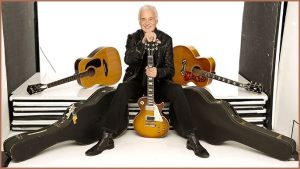
From Zeppelin to Legend: Jimmy Page’s Timeless Reign Over Rock Guitar
By Rock Chronicles Editorial – 600 words
When the conversation turns to the greatest guitarists of all time, one name echoes louder than most — Jimmy Page. From the gritty stages of 1960s London to the monumental stadiums that roared with Led Zeppelin’s thunder, Page’s journey from a studio session genius to a guitar god is nothing short of mythical. His reign over rock guitar has not only stood the test of time, it has transcended it.
Born in Heston, Middlesex in 1944, Jimmy Page started as a prodigious session musician. Before forming Led Zeppelin, his fingerprints were on dozens of British hits, lending his six-string wizardry to artists like The Kinks, The Who, and Donovan. But it was in 1968, when he united with Robert Plant, John Paul Jones, and John Bonham, that lightning truly struck — and the world would never be the same.
With Led Zeppelin, Page unleashed a powerful and poetic brand of hard rock, anchored by his masterful riffs, innovative production, and deep knowledge of blues and Eastern music. Songs like “Whole Lotta Love,” “Black Dog,” “Since I’ve Been Loving You,” and “Kashmir” are more than just tracks — they’re sonic landmarks, studied by generations of aspiring musicians.
One of Page’s most iconic creations, “Stairway to Heaven,” showcased everything that made him unique. The slow-building acoustic intro, the mystical lyrics, the electrifying solo — it was part symphony, part séance. To this day, it’s a rite of passage for guitar players and a timeless piece of rock canon.
But Page was more than a guitarist. He was a visionary producer, shaping Zeppelin’s albums with a keen ear for balance and atmosphere. Working primarily at Headley Grange and other remote studios, he favored a live, ambient approach to recording that gave the band’s sound its raw edge. His use of reverse echo, multi-tracked guitars, and exotic instruments blurred the lines between rock, folk, and world music — years ahead of his time.

Offstage, Page cultivated a reputation for mystique. His obsession with the occult — particularly the works of Aleister Crowley — gave Zeppelin an enigmatic aura. He even purchased Crowley’s former estate, Boleskine House, adding fuel to the mythology that surrounded the band.
After Zeppelin disbanded in 1980 following the death of Bonham, Page retreated from the spotlight but never stopped evolving. He embarked on numerous solo ventures, including the supergroup The Firm, and collaborated with the likes of David Coverdale and Robert Plant himself in the mid-’90s. His 1998 “Walking into Clarksdale” project with Plant showed that even decades later, the old magic still burned bright.
In the 2000s and beyond, Page focused on remastering Zeppelin’s legacy, personally overseeing deluxe reissues of the band’s catalog. His meticulous attention to audio detail and historical preservation earned him praise from critics and fans alike. And though fans continue to hope for a true reunion tour, Page remains selective — perhaps understanding that legends aren’t meant to be overexposed.
Now in his 80s, Jimmy Page remains a towering figure in the history of music. Whether it’s his haunting bowed guitar solo, his thunderous riffs, or his quiet interviews steeped in wisdom, he commands the same reverence he did at Zeppelin’s peak. Countless guitarists — from Slash to Jack White — name him as a direct influence.
Jimmy Page didn’t just help create hard rock — he sculpted it, refined it, and left it permanently altered. He’s not simply a man with a guitar. He’s a living bridge between the ancient and the modern, the mystical and the musical. From Zeppelin to legend, his reign continues — timeless, untouchable, and forever etched into the st
one of rock history.







